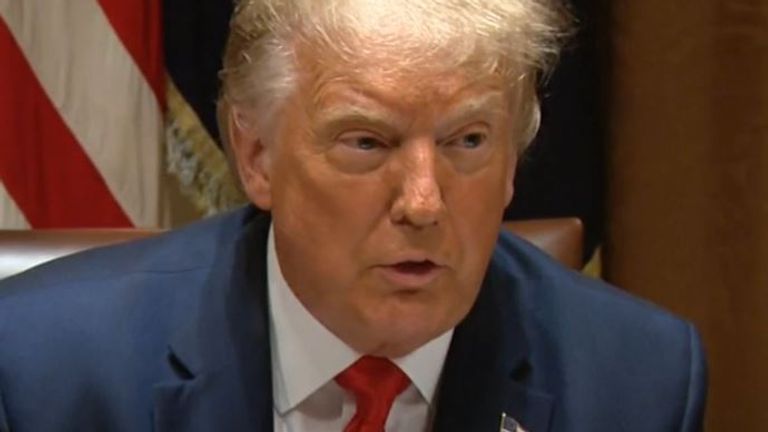An order which would have banned the popular video sharing app TikTok from smartphone app stores in the US has been temporarily blocked.
The order, from the administration of Donald Trump, was due to take effect at 11.59pm on Sunday.
A more comprehensive ban remains scheduled for November, about a week after the presidential election.
Judge Carl Nichols of the US District Court for the District of Columbia, did not agree to postpone the later ban.
The ruling followed an emergency hearing on Sunday morning in which lawyers for TikTok argued the administration’s app store ban would infringe on the company’s First Amendment rights and do irreparable harm to the business.
Earlier this year, the US president said TikTok was a threat to national security and it must either sell its US operations to US companies or be barred from the country.
TikTok, owned by Chinese company ByteDance, is scrambling to firm up a deal tentatively struck a week ago in which it would partner with Oracle, a huge database-software company, and Walmart in an effort to win the blessing of both the Chinese and American governments.
In the meantime, it is fighting to keep the app available in the US.
Judge Nichols did not explain his reasoning publicly, instead filing his judicial opinion under seal.
In arguments to Judge Nichols, TikTok lawyer John Hall said that TikTok is more than an app, since it functions as a “modern day version of a town square”.
“If that prohibition goes into effect at midnight, the consequences immediately are grave,” Mr Hall said.
TikTok lawyers also argued that a ban on the app would affect the ability of tens of thousands of potential viewers and content creators to express themselves every month and would also hurt its ability to hire new talent.
Justice Department lawyer Daniel Schwei said Chinese companies are not purely private and are subject to intrusive laws compelling their cooperation with intelligence agencies.
The Justice Department has also argued that economic regulations of this nature generally are not subject to First Amendment scrutiny.

